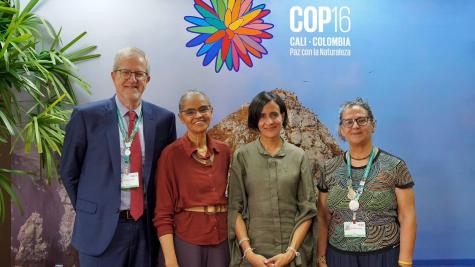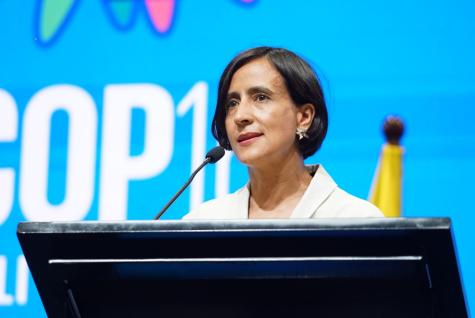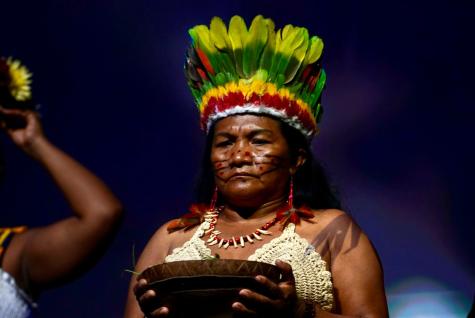COP16 Biodiversity Summit

➡️ COP16 Biodiversity Summit: 21 Oct - 1 Nov 2024 Cali, Colombia
The 16th meeting of the Conference of the Parties to the Convention on Biological Diversity (CBD) brought together representatives from various countries to discuss international biodiversity targets and foster global cooperation to halt biodiversity loss.
➡️ Click here to jump straight to essential resources, must read articles, and video news.
Even before the nature COP started it was clear that the vast majority of countries are way off track from meeting this decade's biodiversity targets. With the red-light flashing, hopes of a breakthrough were left dashed as the talks ended in disarray. COP16 was a display of poor leadership, lack of accountability, and the failure of countries to agree on financing, monitoring, and implementation of the Kunming-Montreal Global Biodiversity Framework (2022).
Lack of urgency and commitment was demonstrated as nearly all countries missed an important deadline to submit their official plans to achieve the ambitious biodiversity targets set at COP15, in particular the 30 by 30 agreement - the goal of protecting 30 per cent of the planet’s land and oceans by 2030. The talks ended with most of the countries plans still missing.
In the last 4 years, the area of the planet’s land and oceans under formal protection has increased by less than 1%! A rate far too slow to ensure that any targets are even within sight.

A funding gap of billions still remains as only $400 million has been pledged out of the $20 billion promised by 2025. No clear plan to close this gap was created and there is still no formal monitoring system of the targets in place.
The talks went into overtime and as delegates began to trickle away, attendance became too small to push through any last-minute decisions. The talks were suspended without resolution.
Environmental groups and activists expressed concerns that the summit was overly influenced by corporate sponsors and lobbyists, leading to conflicts of interest where economic agendas are placed above environmental protections.
Representatives were present from notable companies such as biotechnology trade group CropLife International, commodities giant Bunge, fossil fuel players from ExxonMobil and Shell, pharmaceutical heavyweights such as GSK, multinational mining company Anglo American, Suzano a major player in the pulp and paper industry, dairy giant Danone, and fertiliser company Yara.
Given the scale of the biodiversity crisis, the outcome of the summit seems entirely insufficient. There was a distinct lack of bold and immediate action, leaving critics disappointed in the summit's final declarations and questing the effectiveness of the global biodiversity framework.

One key agreement was made - a deal on collecting revenue from products developed using the planet’s genetic data from pharmaceutical and other biotech companies. They will contribute, albeit voluntarily, 0.1% of revenue or 1% of profits to a “Cali Fund”. The fund will then be used to protect biodiversity, fragile ecosystems, and prevent further loss of species.
Indigenous people also saw a victory with the creation of a permanent body to ensure indigenous participation in decision making to give them a stronger voice in the next round of talks in Armenia in 2026.
As many issues were left unresolved, the agenda will be taken up at an interim meeting in Bangkok, Thailand, in 2025.
Author: Rachael Mellor, 06.11.24 licensed under CC BY-ND 4.0
For further reading on COP16 see below ⬇️
Info on COP16 Biodiversity Summit
- COP16 - General Info[36]
- Articles on COP16[100]
- Videos on COP16[10]